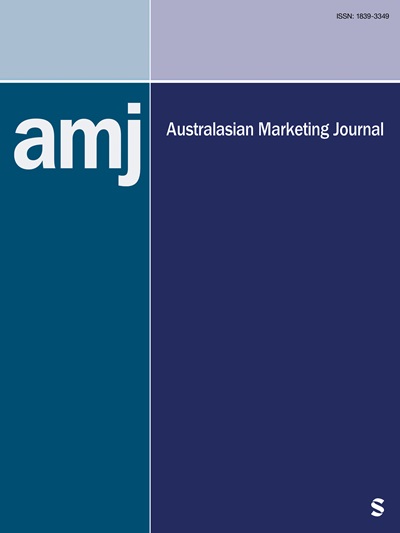eHealth Services and SDG3: Increasing the Capacity of Care
IF 4
Q2 BUSINESS
引用次数: 5
Abstract
The paper’s research objective pertains to explicating the concept of value co-creation of health and social outcomes in an eHealth digital ecosystem context that is critical in addressing sustainable development goal (SDG) 3 – good health and well-being. It conceptualises a theoretical framework using the dynamics inherent to the value cocreation process involving a user of eHealth services and considers the influences of all involved actors from an activity theory and dialogic engagement perspectives. A Mental Health, Alcohol and other drug use eHealth service (eCLiPSE) assists as a case to illustrate the proposed theoretical framework where three overarching propositions are advanced to provide managerial guidance and critical research enquiry. This framework clarifies the importance of improving dialogic engagement processes during both synchronous and asynchronous interactions over time as value creation pathways. Managerially, the paper points to the importance of optimising service design processes and role readiness of actors (users and healthcare professionals) to better enable consumers to engage in effective dialogue in eHealth interactions for harnessing value co-creation. Through the introduction of this framework, eHealth services can be better delivered and scaled to increase the capacity of care and achieve health outcomes pivotal to the success of SDG3.电子卫生服务与可持续发展目标3:提高护理能力
该论文的研究目标涉及在电子健康数字生态系统背景下阐释健康和社会成果的价值共创概念,这对实现可持续发展目标3——良好健康和福祉至关重要。它利用涉及电子健康服务用户的价值共同创造过程所固有的动力概念化了一个理论框架,并从活动理论和对话参与的角度考虑了所有参与者的影响。心理健康、酒精和其他药物使用电子健康服务(eCLiPSE)作为一个案例,有助于说明拟议的理论框架,其中提出了三个总体命题,以提供管理指导和批判性研究询问。该框架阐明了随着时间的推移,在同步和异步交互过程中改进对话参与过程作为价值创造途径的重要性。从管理角度来看,该论文指出了优化服务设计流程和参与者(用户和医疗保健专业人员)角色准备的重要性,以更好地使消费者能够在电子健康互动中进行有效对话,从而利用价值共创。通过引入这一框架,电子健康服务可以更好地提供和扩大规模,以提高护理能力,并实现对SDG3成功至关重要的健康结果。
本文章由计算机程序翻译,如有差异,请以英文原文为准。
求助全文
约1分钟内获得全文
求助全文
来源期刊

Australasian Marketing Journal
BUSINESS-
CiteScore
14.90
自引率
16.70%
发文量
25
期刊介绍:
The Australasian Marketing Journal (AMJ) is the official journal of the Australian and New Zealand Marketing Academy (ANZMAC). It is an academic journal for the dissemination of leading studies in marketing, for researchers, students, educators, scholars, and practitioners. The objective of the AMJ is to publish articles that enrich and contribute to the advancement of the discipline and the practice of marketing. Therefore, manuscripts accepted for publication will be theoretically sound, offer significant research findings and insights, and suggest meaningful implications and recommendations. Articles reporting original empirical research should include defensible methodology and findings consistent with rigorous academic standards.
 求助内容:
求助内容: 应助结果提醒方式:
应助结果提醒方式:


